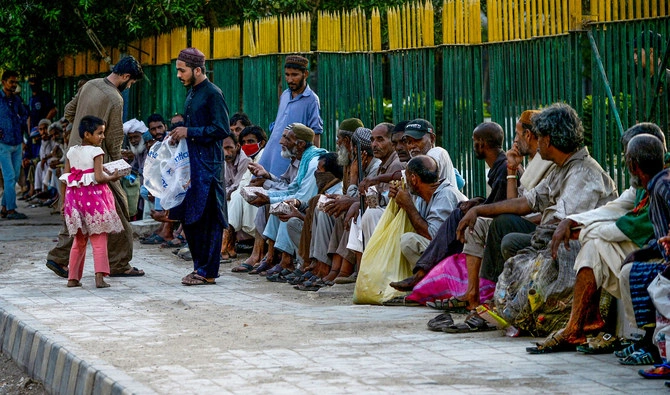- Web Desk
- Yesterday
World Bank report claims Pakistan’s poverty gains have reversed since 2018
-

- Syeda Masooma
- Sep 23, 2025

ISLAMABAD: The World Bank has launched a new report, “Reclaiming Momentum Towards Prosperity: Pakistan’s Poverty, Equity and Resilience Assessment”, analysing 25 years of poverty trends and projections. The assessment, which draws on two decades of data and five years of forecasts, warns that Pakistan’s earlier progress in reducing poverty has stalled and even reversed in recent years.
According to the report, Pakistan saw significant poverty reduction between 2000 and 2015, with rates falling by an average of 3% annually, driven mainly by non-agricultural income from construction, transport, trade and farming.
Also read: Pakistan needs structural reforms to sustain growth, reduce poverty: WB
However, progress slowed between 2015 and 2018, with the pace of reduction dropping to just 1% per year. Since 2018, poverty has begun to rise, exacerbated by COVID-19, the 2022 floods, inflation, and faltering policies.

The World Bank noted that despite an official urbanisation rate of 37%, its own estimates suggest 60-80% of Pakistan’s population now lives in urban settings. Yet unplanned expansion has created “sterile agglomerates” where access to quality services remains poor. Even among higher-income groups, access to clean water, reliable electricity, and child health protection is inconsistent, with conditions significantly worse for the poor.
The report highlights structural challenges, including a persistently low employment-to-population ratio and the exclusion of women and youth from the labour force. It also warns that nearly 85% of Pakistan’s non-agricultural workforce remains trapped in informal labour, leaving millions vulnerable.
“Progress in poverty reduction is threatened by structural vulnerabilities,” said Christina Wieser, Senior Economist and one of the lead authors of the report. “Reforms that expand access to quality services, protect households from shocks, and create better jobs-especially for the bottom 40 percent-are essential to break cycles of poverty and deliver durable, inclusive growth.”
Crucially, the Bank stressed that while poverty reduction once offered hope, improvements in human development indicators, such as education, health, and living standards, have lagged behind, underscoring the urgent need for policy reform and inclusive growth strategies.
Also read: No-shows, aid cuts mar G20 meet on global poverty
The report noted that most Pakistani households remain clustered just above or below the poverty line, leaving them highly vulnerable to shocks. Recent climate disasters, such as the devastating floods, may have pushed many more into poverty, though fresh data is still being incorporated to assess the full impact. While social welfare programmes like the Benazir Income Support Programme (BISP) and the welfare projects related to the National Socio-Economic Registry (NSER) have helped narrow the poverty gap, they have largely fallen short of lifting families out of poverty. In fact, only 9% of households transitioning above the poverty line over the past two decades could be attributed to such cash transfer initiatives.
Way forward
Moving ahead, the World Bank outlined four key policy priorities: investing in people, places and access to opportunities; building resilience; prioritising progressive fiscal interventions; and improving data systems for decision-making. This approach, the report said, should include strengthening local government institutions and promoting well-managed labour migration to create equitable opportunities. It also stressed the need to reduce vulnerabilities to shocks by expanding cash transfer and insurance mechanisms, while recognising climate change as a critical factor in Pakistan’s broader vulnerability that must be embedded into future policy direction.
Addressing why economic models have fallen short, senior economist Tobias Haque clarified that the World Bank does not design such models itself, they are introduced by the government, with the Bank providing support. He added that over the past 18 months, some of the underlying factors driving rising poverty have begun to be addressed, and efforts are ongoing to tackle them more effectively.
“It will be critical to protect Pakistan’s hard-won poverty gains while accelerating reforms that expand jobs and opportunities-especially for women and young people,” said Bolormaa Amgaabazar, World Bank Country Director for Pakistan. “By focusing on results-investing in people, places, and access to opportunities; building resilience against shocks; prioritising fiscal management; and developing better data systems for decision-making-Pakistan can put poverty reduction back on track.”




